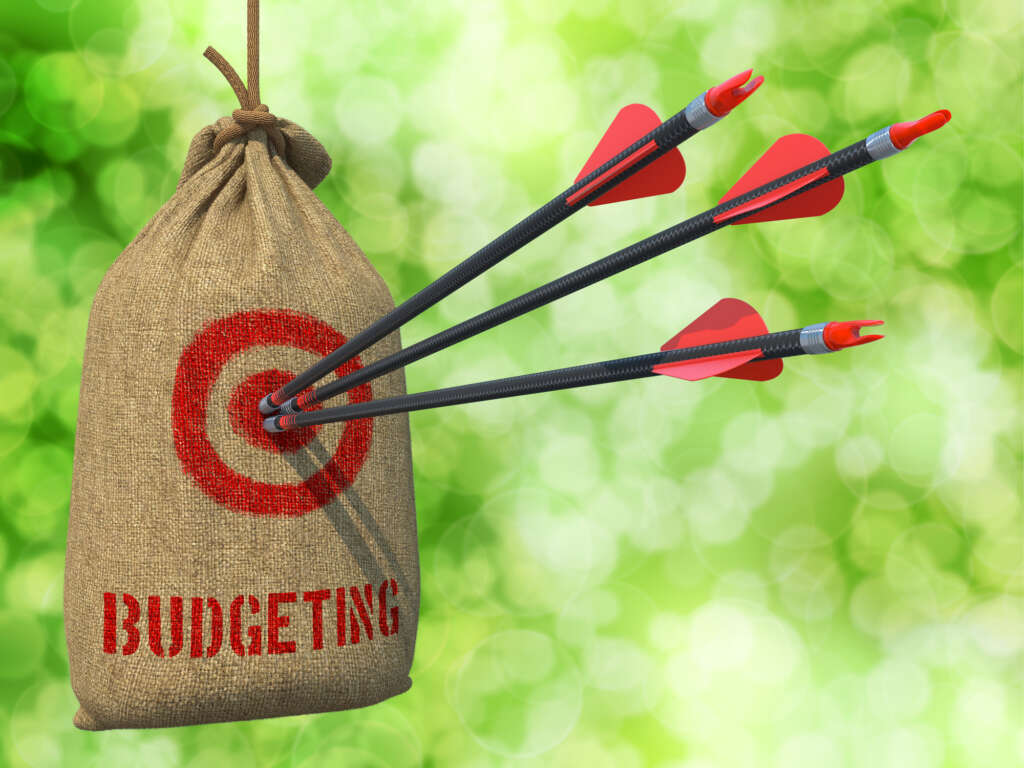Even at the best of times, life rarely goes to plan. So you need to make your own.
Now is the best time to plan for the financial year ahead. Using a budget and forecast in conjunction gives you the best chance of success, by helping you achieve your overall business goals while enabling you to adapt and evolve as needed.
What is a budget?
Budgeting is the process of planning revenue and/or expenses over a specific period of time (usually 12 months). These planned figures then form targets that you aim to achieve over that period.
A budget gives you a target to work towards – first and foremost, your regular monthly overheads dictate the sales you need to make to cover your costs. If you have locked-in sales (eg contracts), you can use a budget to plan for any extra staff or equipment that may be needed to do the work.
Budgets are generally static – they don’t change, regardless of unforeseen circumstances. You set a revenue target for your sales team that they are accountable to reach over the year. If you reach this target, you can be confident the business is performing well.
The annual budget can be broken down into shorter time frames (usually months) to give even greater clarity about the milestones you need to achieve to stay on track.
What is a forecast?
A forecast is a prediction of how a business will perform using it’s past performance to predict the future. It takes into account historical data to predict trends in sales, as well as expenditure that is on the horizon, so you can avoid nasty surprises and minimise cash flow pressure.
A forecast is more fluid than a budget – it is updated monthly or quarterly to reflect changing conditions and circumstances, so it is a more accurate reflection of reality. These updates are best done by your accountant or bookkeeper as part of a regular review of business performance.
Do you need both?
The real power comes from applying a budget and forecast together. A budget serves as a reminder of what you need to achieve in order to reach your overall goals; a forecast gives a more ‘real world’ assessment of what is possible and reasonable to achieve considering the circumstances you face.
Bigger companies usually do both, and I believe SMEs should do the same. Many SMEs create a budget. Few also do a forecast – but they can greatly improve the effectiveness of your short and medium term decision making.
The impact of Covid-19 offers the perfect illustration of the interplay between a budget and a forecast. Most businesses would see a huge discrepancy between this year’s budget compared to actual revenue. However, a continually-amended forecast provides greater clarity around where they stand, and the outlook for the rest of the year, to aid with important decisions such as cutting expenses further or sourcing a loan.
Three reasons to do a budget and forecast:
1/ Make better decisions
More information at your fingertips enables you to make better decisions. A budget and forecast highlight the revenue and expense ups and downs on the horizon, so you can take control and more accurately determine what you can, can’t and should do. By comparing actual sales to budget, you can identify trends of over- or under-performance, and can take appropriate steps to correct or capitalise.
2/ Build a roadmap of what to do
The process of setting budgets and conducting forecasts of revenue and spending forces you to look ahead and think about not just how your business might perform over the next 12 months, but how you want it to perform. Budgets are most powerful when done to support your overall business goals; for example, create your sales budget by first setting your overall profit target for the year, then work backwards to determine the sales required to reach that profit target over the year.
3/ Weather the storm when challenges arise
A budget and forecast helps you to navigate unforeseen issues because you know what you can and can’t afford. Predicting cash flow highlights where you may need to build up a cash reserve to manage a downturn or purchase stock or equipment. You might be able to ride out a one-month sales blip, but more significant threats may require a rethink of your strategy – or a complete pivot of your business.




